"Clean Hands | Clean Heart" - Sermon for August 29, 2021 (Fourteenth Sunday After Pentecost)8/29/2021 Scripture Readings: Song of Solomon 2:8–13 | Psalm 45:1–10 | James 1:17–27 | Mark 7:1–23
“You abandon the commandment of God and hold to human tradition.” (Mark 7:8) How clean are your hands? In the early days of this pandemic, almost a year and a half ago, before we knew much about COVID-19, or how best to stop it, one age-old practice quickly grabbed hold of our attention again: we all began to work much harder at keeping our hands clean. Hand-sanitizing stations began popping up everywhere, along with posters highlighting the best ways to wash our dirty digits. Handshakes and high-fives disappeared, replaced by waves and elbow bumps. Almost overnight, we changed our habits… the way we handle our hand hygiene, stepping up our precautions in an effort to be safe. Hopefully, this change has helped to keep us all healthier… and maybe a bit more aware of how our simple actions can effect (or infect) those all around us. Our Scripture reading today from the Gospel of Mark has a lot to say to us about being truly clean. Not only on the outside, but inside as well. Mark’s Gospel tells us that some Pharisees and Scribes from Jerusalem, the Holy City, came to confront Jesus about His disciples’ uncleanliness… that is, the disciples were not ritually purifying their hands before they ate… a tradition the Pharisees and Scribes cared a whole lot about… not because they were worried about microscopic germs, or hygiene… but because they were really really concerned with holiness. With trying to keep themselves spiritually clean to stay close to the Living God. For them, this was an essential practice for staying in God’s good books… and if Jesus’ followers weren’t following this important tradition, they suggested He must not care about holiness either. Their comment was an attempt to undermine Jesus’ character and reputation. But how was washing your hands before you eat to help make you holy? There is no commandment in the Scriptures about washing your hands before you eat, at least not for regular people… only the Priests serving in the Temple were required to ritually wash their hands.[1] But as we know, this was a tradition, a practice handed down from the past, which tried to honour God’s holiness by going above and beyond God’s commands. In order to avoid crossing the line… to avoid any chance of breaking God’s Law, Israel’s elders got into the practice of placing “a fence around the Law”, so to speak. Establishing their own rules intended to make it ‘easier’ to obey, developing a clear way of life over the centuries. In this case, elders concerned with raising the ‘holiness’ standards of God’s people took ritual cleansings commanded for priestly service and applied it to everyone. After all, what harm could come from everyone building these habits of ritual holiness? Shouldn’t everyone try to put their devotion to God into practice? And so, the Scribes and Pharisees, supported by this human tradition, try to put Jesus in His place by discrediting His disciples. Now we can see why Jesus gets so upset by their question which was designed to malign His followers, and undermine His mission. Jesus responds by calling out their well-hidden hypocrisy: “Isaiah prophesied rightly about you hypocrites, as it is written, ‘This people honors me with their lips, but their hearts are far from me; 7 in vain do they worship me, teaching human precepts as doctrines.’ 8 You abandon the commandment of God and hold to human tradition.” (Mark 7:6-8) Jesus points out that they were using their own traditions in ways that actually undermined their alleged commitment to living in God’s holy ways. They were using their ritual practices as a tool to build up their own religious reputation, and to tear down those who differed from them. The problem was not that they wanted to promote and pursue holiness… or that they developed some practices to help them live this out. The problem was that their traditions had become a barrier… an obstacle… looking great on the outside, but obscuring both God’s character, and holy work in the world. They were so focused on their own definitions of what God wants from His people that they had become blind to the ways they were breaking the heart of God’s commandments… twisting His holy words to support their own selfish ways. By contrast, Jesus Christ reveals the true heartbeat of the Holy Trinity, and He calls us to follow Him into His holy way of life: one wholly in line with the Living God’s character and purposes… not just on the surface, but completely to the core… through and through. Rather than focus on their symbolic practices, Christ cares most deeply about whether or not God’s people are reflecting God’s own holy life. Whether or not they love the LORD their God, and faithfully walk in His ways… and whether or not they share God’s holy love for their neighbours. Christ knows these Pharisees and Scribes care much about having clean hands. And Christ shows us He cares much more about having clean hearts. Does our way of doing things, our understanding of what is right and good uphold or undermine the holy work of the Living God in our midst? In other words… even if our hands seem clean, are our hearts clean? Spiritually speaking, are we focused on the superficial, but ignoring the essential? Are we blind to our own infections, while diagnosing others? As a sort-of silly example, let’s think about this kind of problem in the context of COVID-19: What if our only response to COVID-19 was to clean our hands? Think of all the sanitizing, hand washing, and resisting of hand-shakes that we have adjusted to. Would simply cleansing our hands prevent the virus from spreading? No. The much bigger issue of breathing in the virus would persist. Though hand-washing is certainly helpful, it’s only one part of the answer. We need a much deeper answer to overcome this disease. As a much-less silly example, let’s change the focus a bit: What happens in our minds and hearts when others don’t follow our COVID rules? When people don’t respond to the ongoing pandemic the way we think they should? Cases are rising again in New Brunswick, along with many people’s anxiety levels. There is understandable fear, frustration, and anger being stoked… often directed at those who refuse to take the danger seriously… undermining the safety of our whole community. As Christians, we’re called to love our neighbours… to set aside our own desires in order to work for the good of everyone, especially the most vulnerable… in St. James’ context, that meant caring “for orphans and widows in their distress” (James 1:27). In other words, we’re to stand up for all those with no one else to care for them. With this calling, of course we’ll get upset when vulnerable lives are put at risk. Of course we’ll be pulled by all sorts of emotions and impulses. But despite the physical threat of COVID-19 we’re having to face, there is also the spiritual threats of bitterness, condemnation, and anger that can easily eat away at our hearts… causing all sorts of damage. I saw a newspaper headline this week where someone gave voice to this spirit of spite, saying things like this: “I have no empathy left for the willfully unvaccinated. Let them die. I honestly don’t care if they die from COVID. Not even a little bit.”[2] These words may not have escaped our lips, but do they echo some of our attitudes? Does this in any way reflect the holy way of God that Christ calls us into? Are we free to completely condemn our neighbours, even if only in our hearts? As Christ unpacks His teaching to His followers in Mark 7:21-23, He makes clear that what goes on in our hearts has serious implications: “For it is from within, from the human heart, that evil intentions come: fornication, theft, murder, adultery, avarice, wickedness, deceit, licentiousness, envy, slander, pride, folly. All these evil things come from within, and they defile a person.” This is what makes us ‘unclean.’ And from Matthew’s Gospel, especially in Chapter 5 (the Sermon on the Mount), Christ clearly connects uncontrolled anger, and hate to something as serious as murder.[3] Incompatible, with the holy love of God. But Christ also reveals God’s holy heart, even in the face of hate: Hanging on the cross, Jesus pleaded for His Father to forgive those who had Him crucified… including the Pharisees and Scribes that He had challenged in our reading today. He did not ignore their hypocrisy, just as He does not ignore ours. He did not go along with their selfish schemes, just as He does not support ours. But far from give up on them or us, Jesus gave His life up for us all… for while we were still sinners, while we were at our absolute worst… Christ died for us (See Romans 5:8), and rose again to save us. This is the heartbeat of God. This is the depths of His holy love. Jesus, shedding His precious blood, to cleanse and rescue His enemies. In the absence of hope, so many today are turning to anger and hate. But in the light of the Gospel, the cross and resurrection of Jesus Christ, how are we to respond when we are tempted to give in to anger? Let’s hear again the words of St. James’: “You must understand this, my beloved: let everyone be quick to listen, slow to speak, slow to anger; for your anger does not produce God’s righteousness.” (James 1:19-20). Be quick to listen, slow to speak, slow to anger. We must not give free reign to the forces in us that undermine the holy love of God that Jesus poured out for us all… which is at work in us even now through the Holy Spirit, empowering us to love our neighbours, even if they are acting like enemies! This is just one example of how we humans are tempted to turn from God’s holy ways… all while trying to convince ourselves and others that we’re in the right. But in Christ who die and rose again to cleanse our hearts, and our whole lives, God’s Spirit is empowering us to share His saving love with our world. In closing, let us pray this slightly modified Collect for Purity, placing our faith in Christ to cleanse us through and through: Almighty God, to you all hearts are open, all desires known, and from you no secrets are hidden. Cleanse the thoughts of our hearts by the inspiration of your Holy Spirit, that we may perfectly love you, and our neighbours, and worthily magnify your holy name; through Christ our Lord. Amen. [1] See Exodus 30:18–21 & Exodus 40:30–32. [2] From the Toronto Star, Thursday August 26, 2021. [3] Matthew 5:21-22 “You have heard that it was said to those of ancient times, ‘You shall not murder’; and ‘whoever murders shall be liable to judgment.’ But I say to you that if you are angry with a brother or sister, you will be liable to judgment; and if you insult a brother or sister, you will be liable to the council; and if you say, ‘You fool,’ you will be liable to the hell of fire.” And again, in Matthew 5:43-45, “You have heard that it was said, ‘You shall love your neighbor and hate your enemy.’ But I say to you, Love your enemies and pray for those who persecute you, so that you may be children of your Father in heaven; for he makes his sun rise on the evil and on the good, and sends rain on the righteous and on the unrighteous.”
0 Comments
As of July 31, New Brunswick ended it's Provincial COVID-19 restrictions. To find out what this means for us at St. Luke's GP, please go to our website's homepage for a recent update. Our service of Morning Prayer, Bulletin, & Sermon this week can be found here: Our All-Ages Song for this week can be found here: And our Songs for this week can be found here: Scripture Readings: 1 Kings 8:1, 6, 10–11, 22–30, 41–43 | Psalm 84 | Ephesians 6:10–20 | John 6:56–69
“The words that I have spoken to you are spirit and life.” (John 6:63) Who’s ready for another election? For the third time during this pandemic, next month we’re being called again to cast our ballots… this time, to choose our new Federal Government. To select the leaders we hope will guide our country the best in the aftermath of COVID-19, and the many changes and challenges we now face together. As I’ve mentioned before, voting is a tangible act of trust. A concrete way of saying: ‘we believe in the vision these people are offering, and the way of life they are promising to bring about.’ And as we know, during elections there are plenty of promises, speeches, and words being spoken… fighting for our confidence, as well as our support. Sometimes it’s hard not to be too cynical about these kinds of promises. Sometimes it’s a struggle to figure out who we should trust to guide our country. But every election presents us with a crisis… a moment of decision… where we each must weigh our options and decide who we trust with this huge responsibility. After all, at the end of the day, we can only cast one vote. In our Gospel reading today we encounter another crisis moment at the culmination of a conversation between Christ and those who were following Him. For the last few weeks we have heard how this conversation has been unfolding. Jesus had performed a miracle: turning five loaves and two fish into a feast that fed over five thousand people. They had tasted and seen His life-giving power at work, and they wanted more. In fact, in John 6:15, we’re told that the crowd had it in mind to take Jesus “by force, to make Him king”… to seize political power for this Man who could provide their kind of leadership… that is, someone who could satisfy their hungers. We can see this kind of impulse at work all the time in our world: people seizing power by force, backed by crowds that place all their future hope in them. Such stories, however, all too often bring on great tragedy and disaster… think with compassion about the people of Afghanistan today, whose lives have been shaken to the core by those seeking to rule over them. Back in John chapter 6, we hear that Jesus resists the plans of the crowd, challenging their understanding of what it means to be God’s chosen King… to bring about God’s Kingdom by His Spirit, not by the sword. Last week, we heard how Jesus called the crowd to find true life by eating His flesh, and drinking His blood. A summons, which at its heart is a radical call and invitation to believe… not merely in some ideal, or principle, or political platform… but to believe in Him. To trust Him. To follow Him. To receive, not just things from Him, but to receive the gift of Himself… to share in His own blessed life, offered up to one and all. Today Christ’s invitation to believe in Him is again driven home, as He says to them (and us): “The words that I have spoken to you are spirit and life” (John 6:63). Here we come to the crisis point… to the moment of decision. And today we hear that many decided not to trust in Him. To give up on His vision and His way of life. “[M]any of his disciples turned back and no longer went about with him.” (John 6:66). Wait, who turned back? Today’s passage is not about the response of the hungry but ultimately undecided crowd. It’s about the response of those who had already committed to following Him. Many of His students… His apprentices… His card-carrying disciples decided to walk away. To no longer trust His word, and what He was bringing about. Why? We first hear about their grumbling in John 6:60: “When many of his disciples heard it,” that is, Christ’s claim that He is the Bread of Life, sent from Heaven, and so on, “they said, “This teaching is difficult; who can accept it?” His teaching was difficult. Let’s unpack that a bit. Part of the difficulty may have been that they didn’t understand. They struggled to make sense of what Jesus was talking about. Fair enough! There’s plenty of things that Jesus says that goes right over our heads… and all the Gospels show how Christ’s disciples often misunderstand Him. It can be hard to follow somebody when we can’t quite grasp what they’re talking about. That is, unless we have cause to trust them even when we don’t understand. An infant may not understand much of what their parent says and does, and yet, they still can trust them with all of their heart. Most of us don’t know all the ins and outs of running a government, and yet we still entrust others to do this work on our behalf. Scientists, doctors, and many others see things and know things that we don’t… and yet we still trust them, and rely on them in all sorts of ways. A simple lack of understanding does not necessarily lead to doubt. But there are other reasons why some might find Christ’s teaching’s difficult. We can understand something, and not want to believe in it. Here we have the struggle to accept what’s being said. Choosing to refuse the vision and message that is being offered. Again, we know that it is often a struggle to accept as true the things that challenge our old understandings of how the world really works. To trust in new ways of seeing things… or take on new ways of life. Yet as hard as it truly can be to accept challenging changes, it is not impossible either. We can accept, and have accepted, all sorts of big changes in life… especially if we still have something firm to cling to and believe in. Whatever the reason that the disciples found Jesus’ teaching’s difficult, one option still remained open: they could have chosen to trust in Jesus Himself, despite not understanding… and even despite the conflict and doubts still going on inside them. They could have chosen to stick around out of sheer commitment to Him, but instead, many chose to look elsewhere for the path to life. Today’s reading confronts us current disciples as well with this same question: How will you and I respond to what Jesus our Lord is up to? Especially when we find the things He says and does hard to understand? Or when He deeply challenges the way we see and live in the world? This story highlights a really important point about belief. About the kind of faith that Christ is concerned about. To believe in Jesus, to come to trust in Him is not like an election… where before we cast our vote for Him we first size Him up to see if He ticks all the boxes on our checklists… assessing how closely He aligns with our values, our vision for how things should be, to make sure He will confirm and support our own familiar way of life. No, believing in Jesus means placing our trust and confidence in Him. To place ourselves and our future in His hands wholeheartedly… unreservedly… ‘all-in’. Jesus Christ is the One person that we’re meant to ‘swallow whole’, so to speak. That is, not to try and cut Him up into pieces we’ll say yes to, and pieces we’ll leave behind. He offers us His whole self, coming to us as He truly is, and asks us to to trust in Him, especially when that’s difficult. And just like with elections, we’re asked to trust Him over and over again… to re-affirm our faith over the whole course of our lives. To turn to Him when we find ourselves in situations we don’t understand. And when we are struggling, conflicted, and torn between the things we want, and what Christ shows us to be the way of life. We can take heart as the Gospel reminds us that some disciples stayed true to Christ… remaining by His side, and by the Spirit’s help, keeping the faith. Jesus turns to the handful of followers left, and asks them “Do you also wish to go away?” (John 6:67). On behalf of the twelve, and also for Christians all throughout the ages, St. Peter says to Jesus: “Lord, to whom can we go? You have the words of eternal life. We have come to believe and know that you are the Holy One of God.” (John 6:68-69). And through this handful of faithful disciples… who were not without their own struggles, misunderstandings, conflicts, and doubts… through them the Living God revealed His life-giving glory and love for the world: transforming them into witnesses of Christ’s saving death and resurrection, and receivers of God’s Holy Spirit powerfully breaking out into our world… through their words about Jesus, and as they follow His way of life, drawing people from all nations into God’s family, the Church. When we’re discouraged, when we face difficulties, and when we begin to doubt, let us remember that Christ has spoken to us the words of “spirit and life.” That in Jesus, the Living God is offering all who believe eternal life… and that He can take a handful of far-from-perfect, but faithful followers, and draw them into His mission to reconcile and redeem the world. Perhaps, as we consider our own lives, and the future mission of St. Luke’s, no other questions have more relevance than these: Do we believe that Jesus Christ has the words of eternal life? And if so, how must we put this belief into action? Amen. As of July 31, New Brunswick ended it's Provincial COVID-19 restrictions. To find out what this means for us at St. Luke's GP, please go to our website's homepage for a recent update. Our service of Morning Prayer, Bulletin, & Sermon this week can be found here: Our All-Ages Song for this season can be found here: And our Songs for this week can be found here: Scripture Readings: 1 Kings 2:10–12, 3:3–14 | Psalm 111 | Ephesians 5:15–20 | John 6:51–58
“I am the living bread that came down from heaven. Whoever eats of this bread will live forever; and the bread that I will give for the life of the world is my flesh.” (John 6:51) In our Gospel passage today, Jesus takes the conversation in a very odd direction: he tells His listeners to eat Him. Imagine that this was the very first passage of the Bible you came across; you flip open the pages, and read these words… how do you react? I wonder how many of us would even bother to keep reading? In fact, it’s this kind of visceral imagery that led to the early Christians being accused of cannibalism by their Greek and Roman neighbours. For those of us who have been in Christian circles for a while, we know that Jesus is talking about something beautiful, and blessed here… but even so, this passage still has the power to shake us up a bit. Inviting us to wrestle with some strange sounding questions. Like: How exactly are we supposed to “eat and drink” Jesus? For us Anglicans and many other Christians, this might seem pretty simple: that’s what we do in Holy Communion… in sharing the Lord’s Supper, where we remember and receive Christ’s sacrifice and death on the cross for the sake of the world… which we will be celebrating together in just a few moments. But hold on a second. Is it all that simple? Is He just talking about the sacrament of Holy Communion? Do we really think that simply taking Communion will give us eternal life? Is this what Jesus had in mind when He was speaking to the crowds? Now there is definitely a clear connection between our Gospel reading today, and the Christian practice of Holy Communion. But perhaps we need to take a step back and take a closer look to see if there’s something we’re missing. To see it there’s something more that our Lord might want us to hear… and do. Our passage today takes place in the middle of much longer conversation between Jesus and the crowd that had gathered around Him in Galilee. This crowd had personally tasted the miraculous power of Jesus the day before, when He took one boy’s meager lunch, five loaves of bread and two fish, and made it enough to satisfy over five thousand people. We’re told that they eagerly tracked Him down, when Jesus had moved on with His mission, but instead of repeating the miracle and feeding them all again, Jesus tells them to stop working for “food that perishes, but for the food that endures for eternal life, which the Son of Man will give you.” (John 6:27) When they ask Jesus what kind of work God has in mind, He “answered them, “This is the work of God, that you believe in him whom he has sent.” (John 6:29) A bit taken aback, the crowd responds to Christ’s invitation to believe in Him by demanding that He give them a sign for them to see and believe in Him… pointing to the manna, the mysterious bread from heaven, that Moses provided to Israel during their wilderness wanderings after the Exodus. Christ quickly responds by pointing out that it wasn’t Moses, their greatest hero, who gave them the manna, it was Christ’s heavenly Father who’s the source of true bread from heaven. The crowd then turns to Jesus and says, “Ok then, you give us this heavenly bread… not just once, but always.” “If you are greater than Moses, give us our fill of bread.” In their words we might hear the echoes of Christ’s first temptation in the wilderness: dared by the devil to prove that He was God’s Son by turning stones into bread… this time though, the miracle was not to satisfy His own hunger, but the hunger of His people. They wanted something from Jesus that would fulfill their ongoing desires. But Jesus responds by again offering Himself. “I am the bread of life.” He says, “Whoever comes to me will never be hungry, and whoever believes in me will never be thirsty. 36 But I said to you that you have seen me and yet do not believe… 40 This is indeed the will of my Father, that all who see the Son and believe in him may have eternal life; and I will raise them up on the last day.” (John 6:35-36, 40)” The crowd begins to balk now: ‘who does this Jesus think that He is?’ ‘This is just the son of Joseph…’ ‘we know His family…’ ‘how can He claim to be God’s gift sent from heaven?’ But rather than smooth things over, Jesus takes this heated conversation to the next level: “Very truly, I tell you,” He says, “whoever believes has eternal life. 48 I am the bread of life. 49 Your ancestors ate the manna in the wilderness, and they died. 50 This is the bread that comes down from heaven, so that one may eat of it and not die. 51 I am the living bread that came down from heaven. Whoever eats of this bread will live forever; and the bread that I will give for the life of the world is my flesh.” (John 6:46-51). The conversation between Christ and the confused crowd keeps going, and next week we’ll be spending some time reflecting on how it wraps up. For today, I just want us to consider two words that keep popping up throughout this chapter. Interestingly enough, they both begin with the letter “b”. The first one of course is ‘bread’… but the second is ‘believe’. Believe. Believe in the one that God has sent. Whoever comes to Him will never be hungry, and whoever believes in Him will never be thirsty. The crowds had seen Him, /and yet did not believe. All who see the Son and believe in him may have eternal life. What is this passage, this whole conversation really about? The crowds can’t stop thinking about how to get something from Jesus: first ordinary, then heavenly bread… signs, straightforward answers. But the central concern of Jesus is that the crowds not simply seek things from Him, but that they believe in Him. That they put their faith in Him as the One sent from the Father, not just to fill their bellies with food, but to fill them with God’s blessed life, for all eternity. The miracle they had tasted when he multiplied the fish and bread, was truly a great gift displaying the generous, powerful love of God. But even more crucial was God’s gift of His only Son… sent to offer His life to be broken and poured out to bring forgiveness of sins, and New Life to God’s people… and to the world. Jesus Christ is Himself the ultimate source of all we truly need. In Him, God shares His life with us, and will forevermore. In this context, to “eat and drink” Jesus means to believe in Him. To say ‘yes’ to His invitation, His call to place our trust in Him. Not once, but over and over again… as our true daily bread. It’s faith in Jesus Christ that enables us to rightly receive Holy Communion as a sacrament… an outward sign of God’s grace working inside of us. Without faith in Jesus, this precious gift just becomes a ritual… something we do, which might be beautiful, but lacks God’s life-giving power. But we are invited to come to Christ’s table trusting in His love for us… placing our faith, not in our own goodness, but in His saving sacrifice… called to receive this bread as His broken body, and this wine as His blood, shed for us… to believe the Good News of all He has done, to fill us with His New Life. Holy Communion is one of the most precious gifts Christ gives us to strengthen our faith… to draw us closer to Him so we can receive anew His grace and love. But it is meant to inspire and empower us to live our entire lives by faith. To be guided each day, not by our own wisdom, but by the hand of our Saviour… setting His will above our own desires and plans. In everything we do, gathered together here for worship, or out in the wide world, we are called to “eat and drink Jesus” …to continually trust in Him, and walk in His life-giving ways. So may the Holy Spirit fill us all with a living faith in Jesus, drawing us ever deeper into the blessed New Life of God. Amen. As of July 31, New Brunswick ended it's Provincial COVID-19 restrictions. To find out what this means for us at St. Luke's GP, please go to our website's homepage for a recent update. Reading the Holy Scriptures together is a powerful and life-giving practice of the Church. Over the last month, we have been sharing videos from the Bible Project to help us read the Holy Scriptures with a deeper understanding. These videos are only the first four in a 19 part series called: "How To Read The Bible". Whether you have been reading the Bible for decades or are just getting started, all these videos are well worth watching, and together they provide a solid foundation for helping us understand both what the Bible is, and how we can read it more faithfully. This whole video series can be found by following the link below: Our service of Morning Prayer, Bulletin, & Sermon this week can be found here: Our All-Ages Song for this season can be found here: And our Songs for this week can be found here: Scripture Readings: 2 Samuel 18:5–9, 15, 31–33 | Psalm 130 | Ephesians 4:25–5:2 | John 6:35, 41–51
An invitation for reflection on the Scriptures from Rev. Rob. There are many ways that God can speak to us through Holy Scripture, including times of silence, quiet reflection, and sharing. Just as we did these last few weeks, I invite us to personally think about these questions arising from our Scripture readings. We’ll take 3-4 minutes together in silence for us to reflect on each question. You might find it helpful to write down your answers, but you don’t need to share your answers with anyone. For questions 1 & 3, those who feel comfortable doing so are invited to share their responses in a word or two, but even then, no one has to share unless they would like to. 1. What words, ideas, or images stood out to you as the Scripture passages were read? Why did they stand out? [If anyone feels able to share their response in a word or two here, please do]. 2. Today’s reading from 2 Samuel gives us a glimpse of the turmoil of King David’s family: his son Absalom (whose name means “my father is peace”) led a rebellion against King David. At first he succeeded, driving David from Jerusalem, but the civil war ended with Absalom’s death in battle. Despite Absalom’s great betrayal, David still loved his son and was deeply grieved by the news of his death, even saying he wished he himself would have died instead of Absalom. Reflect on David’s experience and grief for a moment. In what ways might David’s story here be similar to God’s relationship with His rebellious people? In what ways is it different? 3 In our reading from Ephesians, St. Paul again describes the kind of life God’s children are to share: one of mutual kindness, forgiveness, integrity, and support, sharing the self-giving love Christ Jesus first offered to us. How does this way of life connect to our faith, and our purpose as a Church community? What might be some obstacles that keep us from following this way of life? [If anyone feels able to share their response in a word or two here, please do]. 4. In our Gospel reading, Jesus responds to the doubts of His fellow Israelites by insisting that He is the gift of eternal life offered from God the Father. How has drawing close to Jesus and placing your trust in Him been a source of blessing to you? Take a moment and give thanks to God for any blessings that come to mind. As of July 31, New Brunswick ended it's Provincial COVID-19 restrictions. To find out what this means for us at St. Luke's GP, please go to our website's homepage for a recent update. Beginning Sunday July 18, our Priest-in-Charge here at St. Luke's Gondola Point, Rev. Rob Montgomery, has been on holiday, and he will be returning to us next Sunday (Sunday August 15). While he is away, we will continue to offer Morning Prayer services each week (both In-Person in the St. Luke's GP Hall, and here on our Parish website), led by our great Lay Reader team. Also during this time, instead of our usual sermons we have been making use of some Reflection Questions each week to help us hear and respond to God's word to us in a different way. Reading the Holy Scriptures together is a powerful and life-giving practice of the Church. Over the last few weeks, we have been sharing videos from the Bible Project to help us read the Holy Scriptures with a deeper understanding. Three weeks ago, the video was part 1 of their "How To Read The Bible" series, called: "What is the Bible?" Two weeks ago, the video was part 2, called: "The Story of the Bible." Last week's video was part 3, called: "Literary Styles." And this week's video is part 4, called: "Ancient Jewish Meditation Literature" All are well worth watching, and together they provide a solid foundation for helping us understand both what the Bible is, and how we can read it more faithfully. These videos can all be found below: Our service of Morning Prayer, Bulletin, & Reflection Questions this week can be found here: Our All-Ages Song for this season can be found here: And our Songs for this week can be found here: |
Rev. RObRev. Rob serves as the Priest-in-Charge at St. Luke's Gondola Point, and as the School Chaplain at Rothesay Netherwood School Archives
June 2024
Categories
All
|
|
5 Quispamsis Road, Quispamsis NB, E2E 1M2
Mail to: 12 Quispamsis Road, Quispamsis NB E2E 1M2 |
Contact Us
Parish Phone: 506-847-3670 | www.stlukesgp.ca | www.facebook.com/StLukesGP/ Rev. Rob: 506-608-1772 | [email protected] |
Proudly powered by Weebly




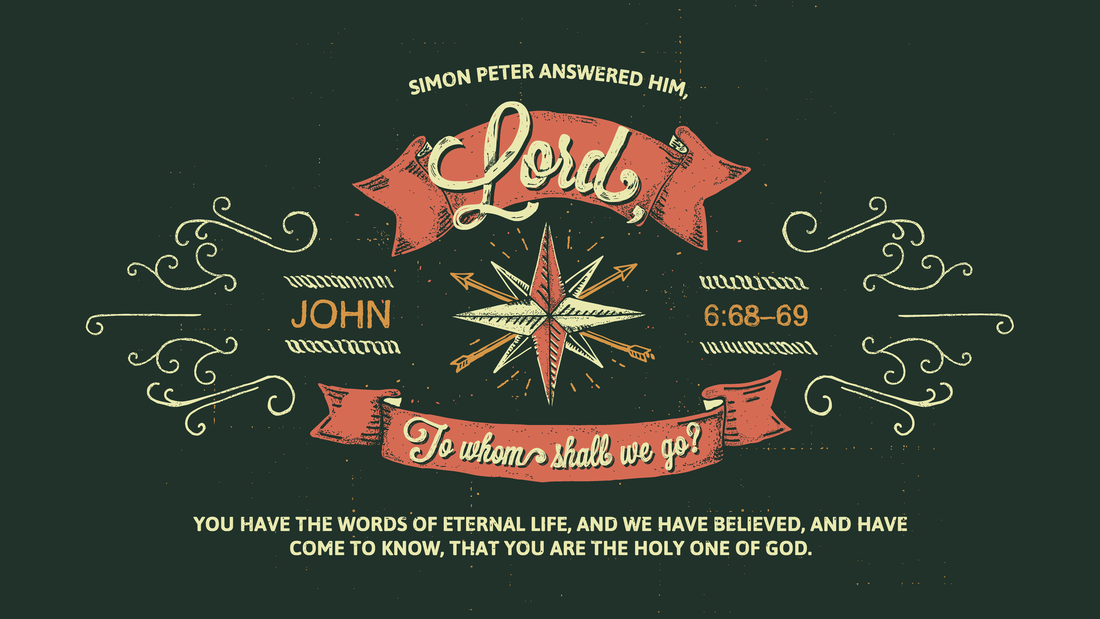
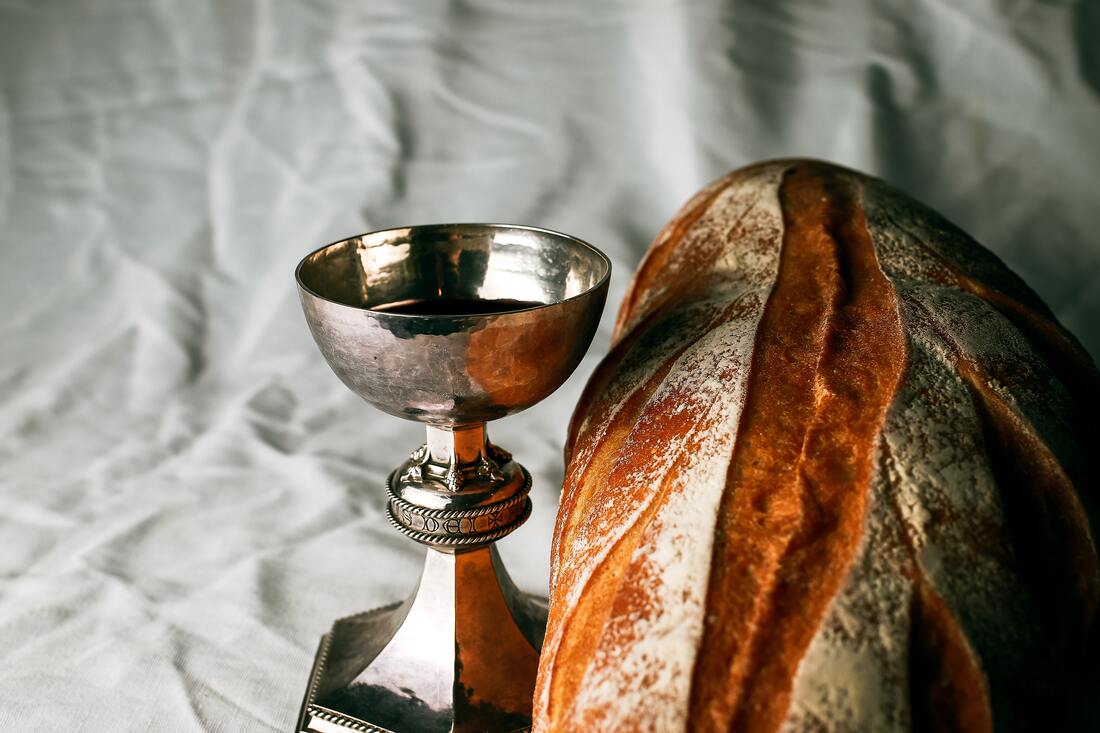
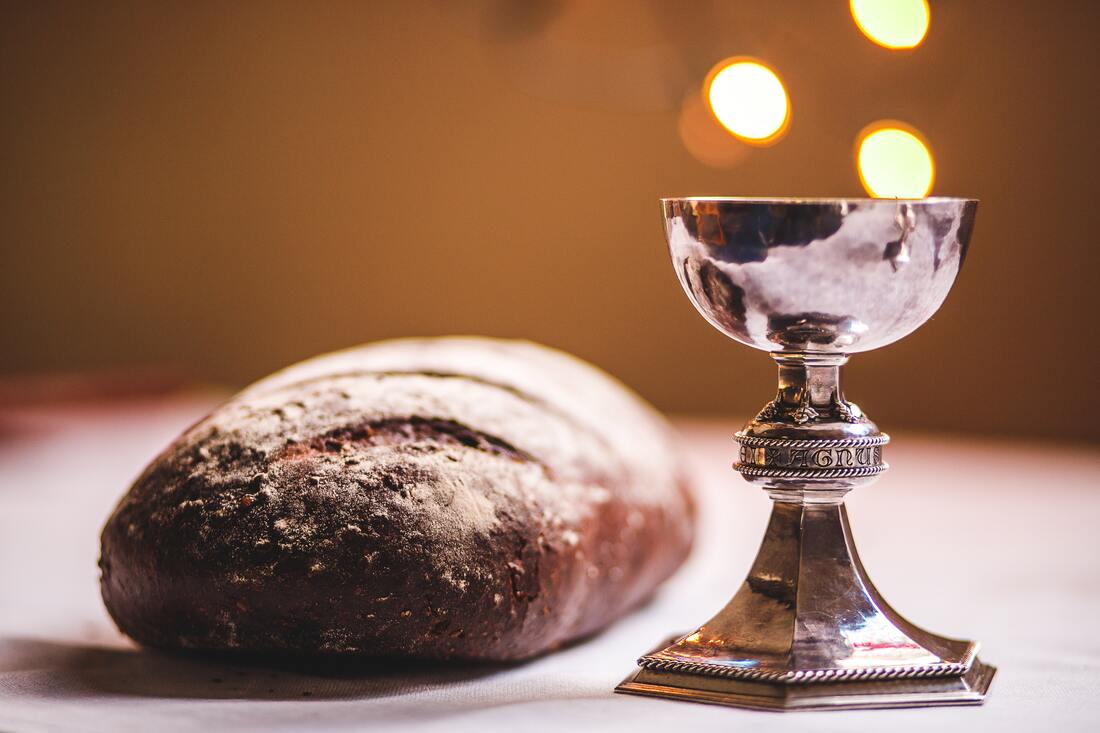
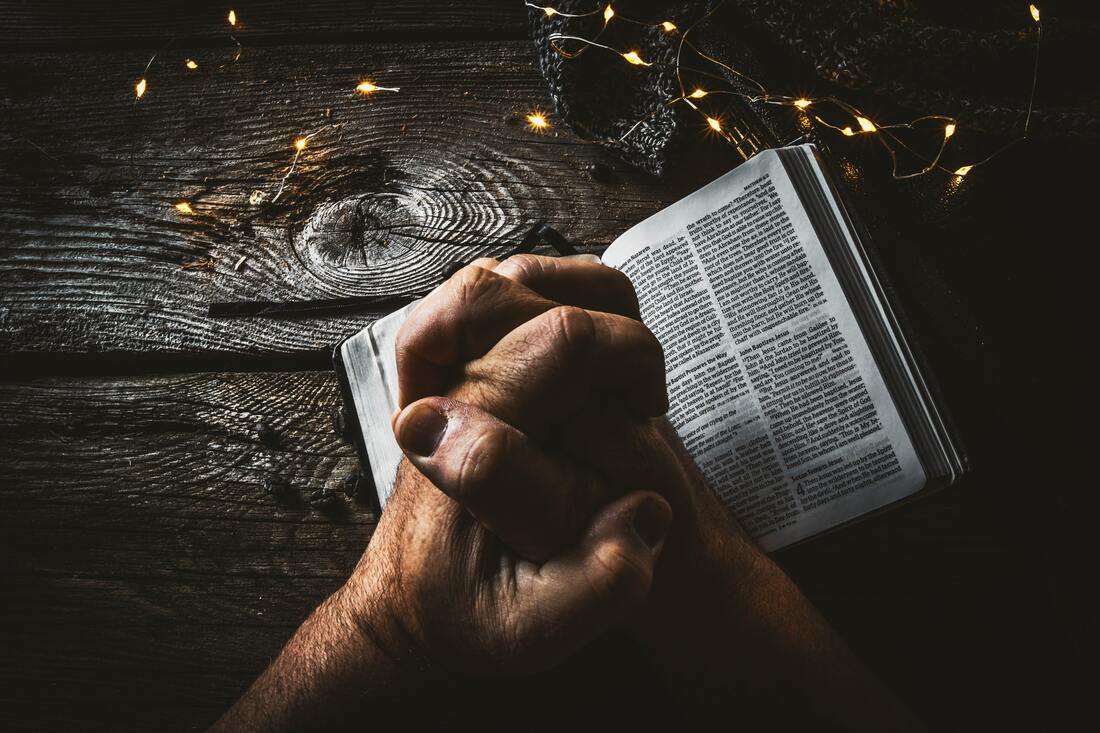
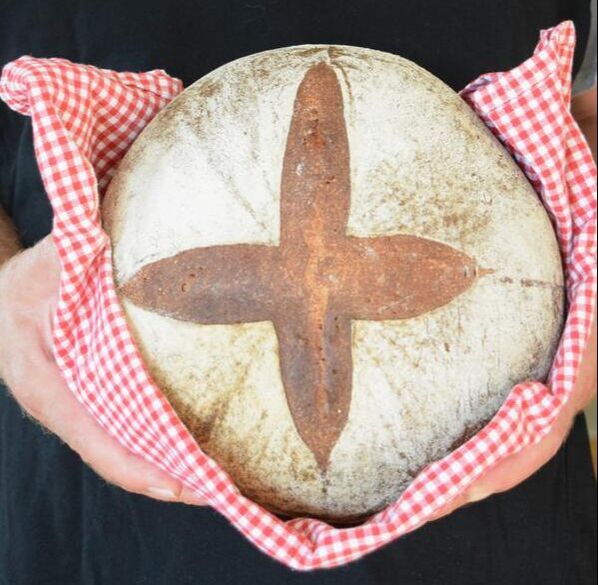
 RSS Feed
RSS Feed
